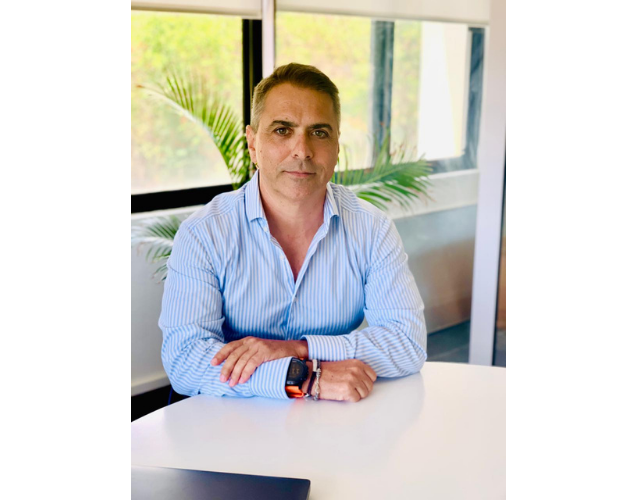Mark O’Sullivan, Founder of IPT Africa, shares his insights on Mauritius how continues to position itself as a FinTech Hub by collaborating with key partners, how IPT Africa is supporting global corporations in the evolving payments space, and how the upcoming Africa FinTech Festival will enhance the visibility and credibility of Mauritius as a FinTech hub for Africa.
Edited excerpts from an exclusive interview:

Since you arrived in Mauritius, you have been at the forefront of innovation and FinTech in Mauritius and Africa and collaborating with key market players. Can you take us through the journey so far? Why did you decide to set up in Mauritius?
I initially came to Mauritius ten years ago with a belief that, as the economies of the African continent grew, Mauritius would be an integral part of this. There was an opportunity to locate to Mauritius, to strategically position the IFC to global corporations so they could access Mauritius as a hub for making payments into the fast-growing economies on the African continent, leveraging on the reputation that the IFC had already created. Therefore, I decided to make a long-term commitment, investing in the country, and employing a local workforce and immersing them into the growing African FinTech space. and kick-started from there.
What is your view on Africa’s potential as far as the FinTech industry is concerned? Where does Mauritius stand, especially with the launch of the Mauritius Africa FinTech Hub (MAFH) and the island positioning itself as a major hub for FinTech and innovation in the region?
Despite COVID, in the past 12 months Africa has seen the largest investments into the FinTech space, and this is something I expect to continue. The mistake that many people make is underestimating the size of Africa, since by 2025 there will be 100 African cities with more than a million inhabitants. The opportunities will continue to grow. If you look at Ghana, in 2012 only 350,000 mobile money wallets were being used. In 2020, more than 14 million active wallets were being used to pay for a wide range of products and services. The growth in mobile money is just one area where technology has revolutionized Africa.
The recent Capital Economics Report, commissioned by the Economic Development Board, has clearly highlighted the key position that Mauritius plays not only for investment into Africa but for the follow-on effect of job creation and supporting ongoing growth on the continent. In my opinion this Is exactly the foundation we need to promote Mauritius as a hub for FinTech and innovation in the region. The MAFH has done a fantastic job in promoting the island and raising its FinTech profile not only in Africa but globally, underlined by its diverse geographical membership, considering that three years ago, MAFH did not exist. The ongoing growth for FinTech will continue and I would like to see more companies relocating to make their African regional headquarters on the island.
Coming to mobile payments, these have been gaining significant traction on the African continent. How do you see the next phase of development in the FinTech space? What kind of partnerships will we see?
The population dynamics will continue to support mobile money on the African continent. It was the lack of banking infrastructure and the growth of mobile communications that provided the platform for the explosion of mobile money and the myriad of operators to support this. The headline stories and investments are still in the financial services sector, payments, digital banks and insurance. I would, however, expect health, ESG projects and food supply sectors to benefit from the increase in tech and investment. The recent AfCFTA agreement is expected to boost Africa’s income by $450 billion by 2035, once again highlighting the opportunities the continent will provide in the coming years.
Global corporations are facing a multitude of issues in accessing the African payment space, which could be holding them back from entering new markets. How is IPT Africa seeking to support global corporations with its platform and what are its main areas of focus?
In the last ten years, we have seen how FinTech has revolutionized global payments, how online apps connect the world, and how billion-dollar value payment providers are now listed on the world’s equity markets. However, when it comes to Africa, and you move away from the traditional remittance markets, global corporations experience an opaque, fragmented and slow process when trying to access the African payment space.
Our mantra is one of “Frictionless African Payments“, with our platform supporting global corporations with the capability to enter new African markets. Real time pricing in local African currencies and multi-channel delivery options via local banking networks or mobile corridors bring speed, transparency and lower costs to their payment cycles. Global payroll companies and those operating in the ESG space with a remit to provide lower costs and transparency to their payment cycles are the areas which we feel will continue to grow in line with the economic growth the continent will experience in the next 10 years.
What is your view on the future of FinTech for Mauritius and the African continent? What are the main challenges and opportunities and how can these be addressed?
Africa will continue to provide opportunities and challenges as Mauritius positions itself as a FinTech hub. A clear strategic FinTech vision would give a framework to operate from that takes into account the size of the population of Mauritius and the potential to grow and adopt FinTech solutions within this, yet which also provides incentives for FinTech companies looking to leverage into Africa a reason to have a presence on the island. In view of the demographics and local market size, it is unrealistic to expect Mauritius to compete with the likes of Nigeria or Cape Town, yet as I have previously mentioned we do have a solid 20-year track record as a global IFC and all the benefits that this brings.
Lastly, IPT Africa is proudly sponsoring the Africa Fintech Festival (AFF) 2021 to be held in October. What are your expectations from this landmark event?
You cannot underestimate the size of the task in winning this event with previous hosts being Nigeria and, Uganda and the fantastic work from MAFH in winning the bid. Despite the obvious implications of COVID, this remains a fantastic opportunity to showcase what Mauritius has to offer. I think this event will undoubtably raise the visibility and enhance the credibility of Mauritius as a FinTech hub for Africa. This will lead to ongoing opportunities for local operators already working in the ecosystem and global companies to consider Mauritius as part of their African FinTech operations.
When you consider only three years ago Mauritius had no real FinTech ecosystem and it is now hosting the African Fintech Festival, it’s a testament to the efforts of all involved in Mauritius FinTech and something we can all build from.
